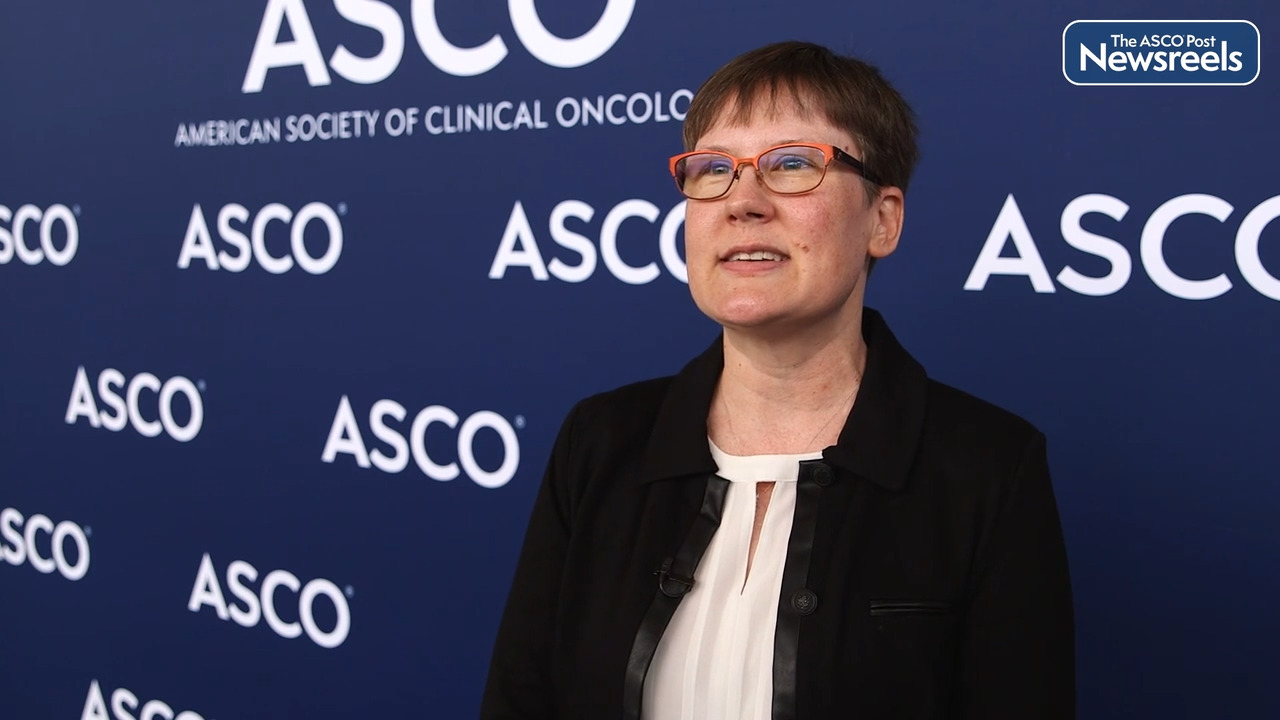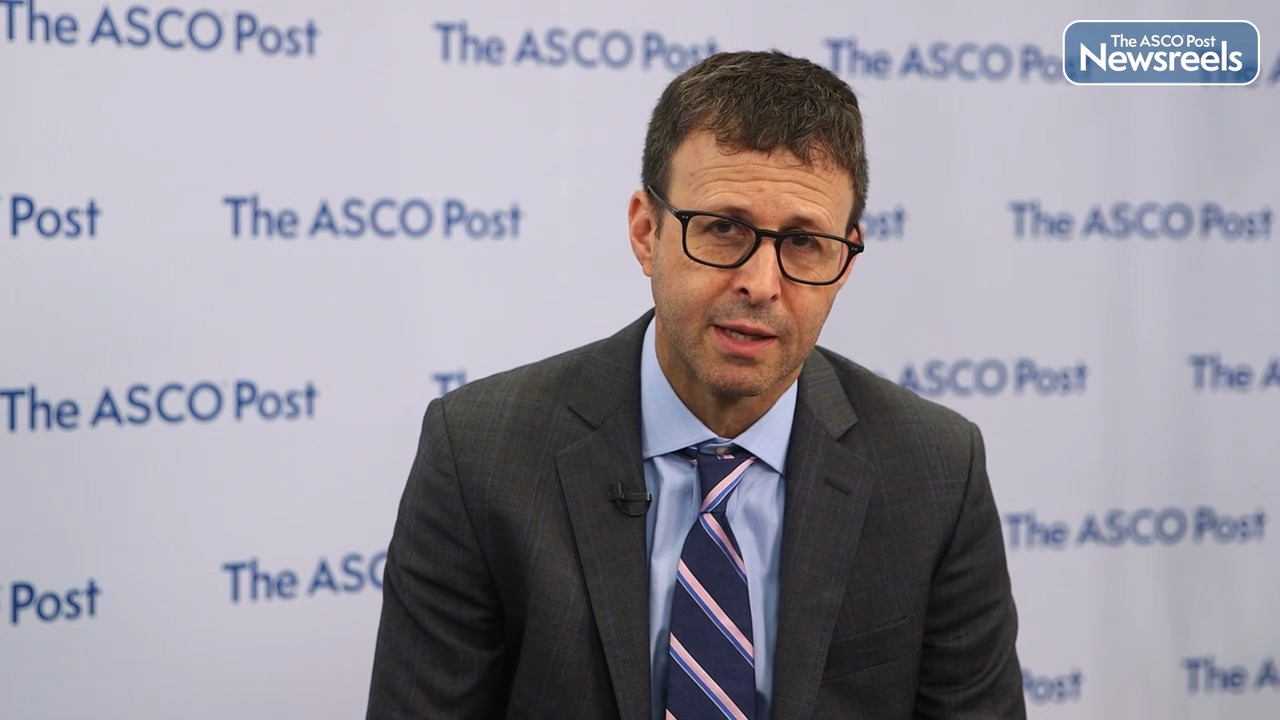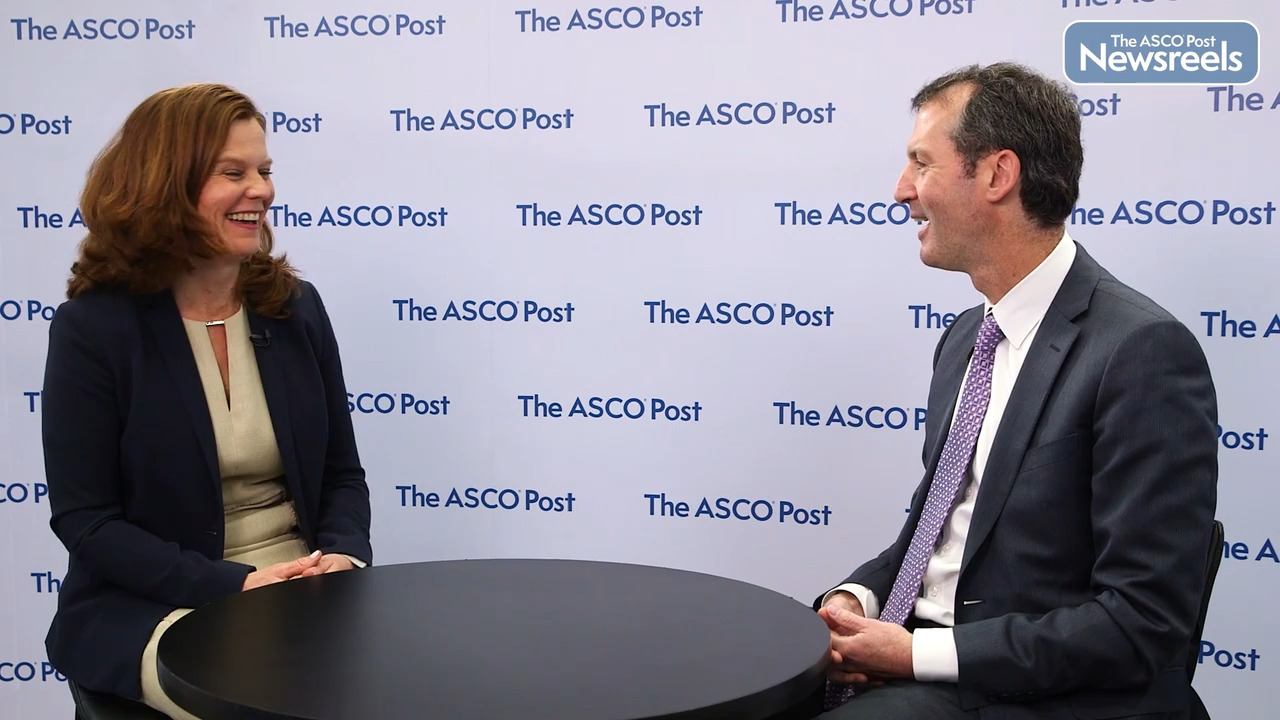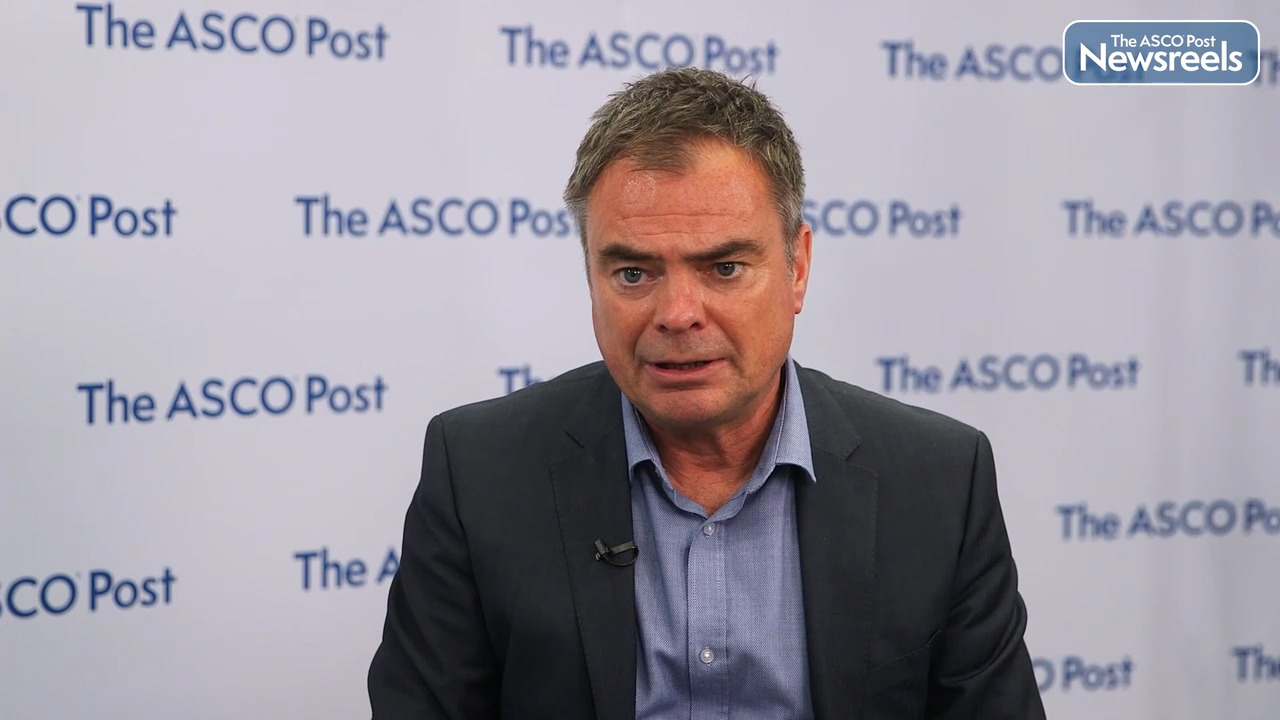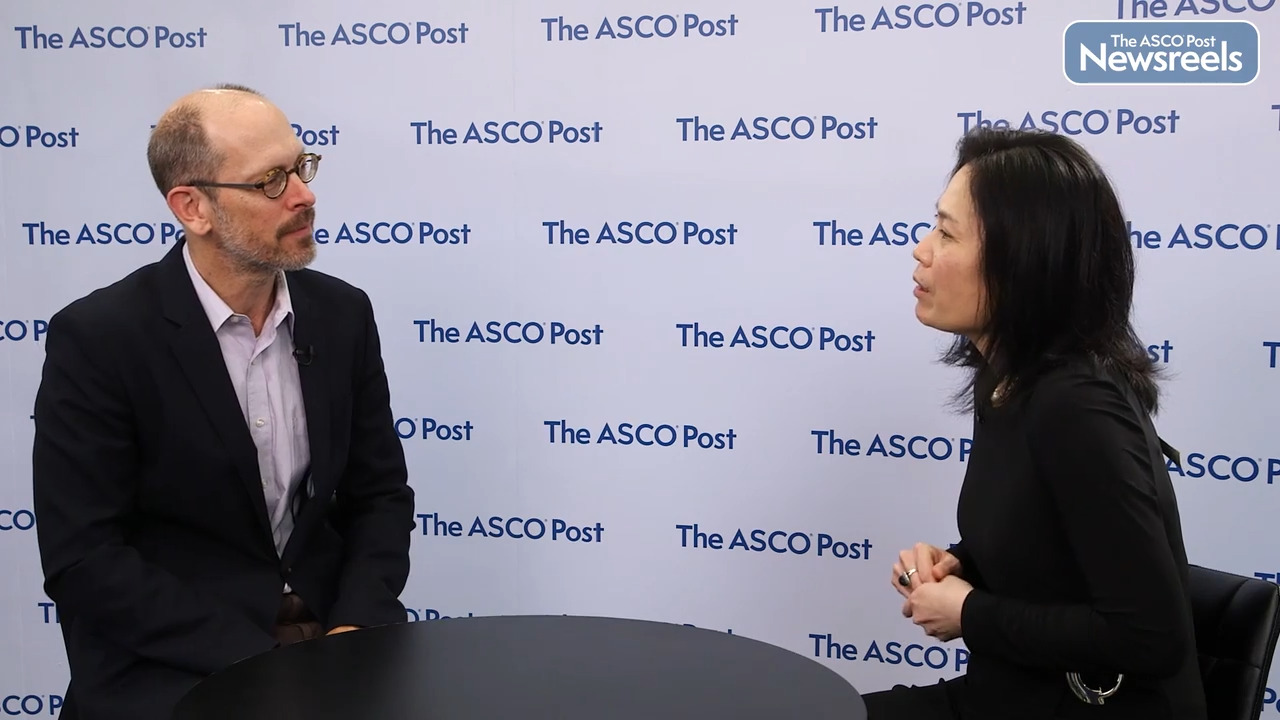Transcript
Disclaimer: This video transcript has not been proofread or edited and may contain errors.
Andrew D Zelenetz:
Michael, thank you for joining us today. And congratulations on the presentation of the SHINE data. A study we've been waiting for a long time to hear the results. Can you review with us the major findings of the study?
Michael Wang:
Well Andy, is an honor and a great pleasure to be able to sit here to have a nice conversation with you on the SHINE study. As you know, you are one of the top experts on this field, on this topic. So younger patients, they survive more than 10 years with the intensive chemotherapy. But older patient, they are not able to tolerate the intensive chemotherapy or other therapies as well as young people. So they don't survive very long as the young people.
Michael Wang:
So, there's a big discrepancy between young and old patient affected by mantle cell lymphoma. So this study is trying to close the gap. By adding a Bruton's Tyrosine Kinase inhibitor, BTK inhibitor, to the most commonly used frontline therapy, Bendamustine/Rituximab, we call it BR. So Ibrutinib plus BR, and as the experimental arm versus BR plus placebo. The primary endpoint is the progression free survival. And in this free clinical trial, after seven years of follow up, the median PFS was 6.7 years in the Ibrutinib arm versus 4.4 years in the placebo arm. So, according to our academic definition, because this trial met its primary endpoint, therefore it is a positive and successful study.
Andrew D Zelenetz:
And how was the tolerance for the treatment?
Michael Wang:
The tolerance, there's many parameters about the tolerance. First of all, all the side effects are, of what we've seen, there's no surprises. They're within our expectation. And we are dealing with these side effects every day in our practice with bendamustine-rituximab, with BTK inhibitors, including Ibrutinib. So nothing surprises, but there's of course in the Ibrutinib arm, there's a side effect higher than the placebo arm. For example, rash, pneumonia, anemia, diarrhea, and so forth. But those, in my opinion, we are able to handle that and we are able to know how to handle them.
Michael Wang:
So I have to see that 10 years ago, when the study was designed, we did not have so much experience, how to handle the BTK inhibitor toxicity problems. But nowadays, after 10 years, we evolved and we are much more comfortable to handle these issues. We know when to stop, when to decrease dose, when to give a break, and withdraw even, right? So, but I have to remind you, Andy, this study, as you know, was published yesterday on May 21st in the New England Journal of Medicine. In the supplemental figures, there is a quality of life questionnaire from the patient. According to the lymphoma fact questionnaire, the two groups are similar in their quality of life. According to this subjective measurement of the toxicities, one side of it.
Andrew D Zelenetz:
So one of the somewhat disappointing factors of this study was that, with long follow up ... I mean, it's not very often that the first time we hear about a study is with seven years follow up. It's a little bit disappointing, particularly in this older patient group, not to see an overall survival difference emerge, with a significant difference in progression free survival. What do you think are some of the reasons why we're not seeing that overall survival difference?
Michael Wang:
So, first of all, let me comment, why it took so long. We took so long because the experimental arm and the placebo arm, they are much better than the standard therapies. We are using [inaudible] Bendamustine/Rituximab, our rear cap, our progression free survival is ranging between 1.5 to 3.5. So even in the ex placebo arm, in this clinical trial, the PFS was 4.4 years even outperforming the other chemo immunotherapies we're currently using. Why? Because we added the Rituximab maintenance. That made the difference. But even on top of a very good PFS or 4.4 years, better than any therapies we're using in the elderly population, we have an additional 2.3 year gain on the progression-free survival. So this is a positive study and it can not be any positive than this.
Michael Wang:
Second of all, I think, Andy, your question on overall survival is very insightful. It's the very question people ask. Why, after seven years, we have not have overall survival analysis. Point me. First of all, overall survival in this clinical study is the secondary endpoint, as you know. And this study is not designed to answer the overall survival questions, although the long time of duration. Because our statisticians have calculated if we use overall survival at any point, and designed the trial according the overall survival, it will take about 1500 patients, 1,500 patients, and over 15 to 20 years. A lot of time to get to the overall survival benefit. And our patients simply cannot wait for that.
Michael Wang:
So with the all the regular agencies, our consensus in academia, progression free survival is the end mark, as approved by FDA before this trial. So in my opinion, the overall survival will show benefit. Further all, the toxicity, the mortality in this trial are threefold. Number one, some people died from progressive mantle cell lymphoma. Some people died from toxicities. And some other people died from other reasons. The other reasons, remember at the study entry, the media age was 71 years old. So after seven years followup, their median age is 78 years.
Michael Wang:
So practically half of the people at this point is over 80 years old, and they die from other causes. So these causes was much higher in the Ibrutinib arm than the placebo arm, 48 versus 37. So this is a chance that had randomly. But if you do not count the diseases because they are not related to the trial, if you count only the patient died from progressed disease and died from toxicities, we call it the cost specific overall survival analysis, the hazard ratio is 0.88 in favor of the Ibrutinib trial.
Michael Wang:
So as we speak, the other big issue is that we only has met 40% of overall survival events. We're still waiting for the other 60 to happen, right? So the data is not mature and the overall survival data will continue mature with time. And I'm very confident we will continue to separate due to the overall benefit of the [inaudible] free survival.
Andrew D Zelenetz:
I want to thank you very much for joining us today to discuss this landmark trial. And we do look forward to seeing additional data in the future.
Michael Wang:
Wow. Andy, thank you.
